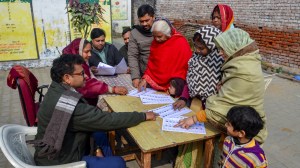Kerala8217;s date with death
The Kerala model of development has long been cited at national and international levels as a triumph of rational social engineering. Econom...

The Kerala model of development has long been cited at national and international levels as a triumph of rational social engineering. Economists like Amartya Sen have even placed it higher than countries like China on the human development scale. Whether it is its high literacy levels, or its low death and birth rates, there is a great deal about this state that the country can be proud of. But there is one set of statistics that belies the promise inherent in all those positive indicators: Kerala has the highest suicide rate among all the states in India. On Wednesday, Kerala8217;s Chief Minister E.K. Nayanar informed the State Assembly that between April 1992 and March 1997, there were 41,397 cases of suicide in the state. Further, in just two years 8212; between 1996 and 1998 8212; some 15,200 people in the state chose to take their lives. These are just reported cases, the actual number could be much higher. Nayanar, of course, in characteristically combative fashion, defends his state8217;s record. He maintains thatit is not correct to say that suicides here are on the increase.
In fact, there cannot be a more damning indictment of Kerala8217;s development paradigm, or its politicians8217; ability to govern, than these figures. The tragically high number of suicides reflect great human despair and frustration at a mass level. And, in case Nayanar is not sufficiently impressed by the suicide rate, he has only to consider his burgeoning excise collections to surmise that alcoholism is fast becoming a chronic malaise in the state. Further, in a region that is justly proud of its trained medical personnel and facilities, the mental wards are full to overflowing and Nayanar should pause to consider what that signifies. Kerala8217;s problem is that its high literacy rate and its well-trained workforce have not been able to deliver it from a poor industrial growth profile and endemic unemployment. So few are the opportunities for social advancement in the state that the response to an advertisement for the humble post of a driver in apublic sector unit can sometimes draw a response running into tens of thousands. Many have tried to escape from this dismal scenario by purchasing an air-ticket to the Gulf. But this, too, has its own frustrations.
Psychiatrists in the state have reported on the tremendous pressures that are brought to bear on the women who are left behind and who are forced to bring up their children single-handed. Many among them have opted to kill themselves rather than cope with life8217;s daily frustrations.
Kerala8217;s paradox is the great mismatch between popular expectations and social reality, between people8217;s potential and their ability to realise it. Unless this gap is bridged, men and women in this state will continue to walk past the gate of no-turn. Each suicide is a postcard written from the edge of despair. But is anybody responding to its silently deafening plea?
- 01
- 02
- 03
- 04
- 05































